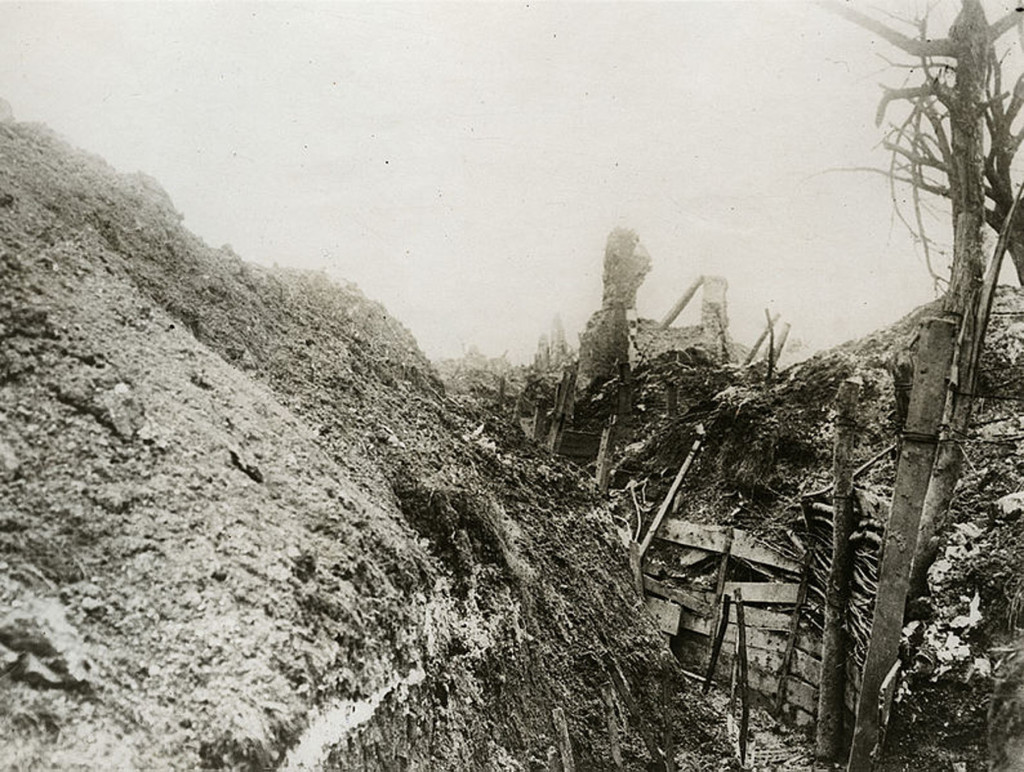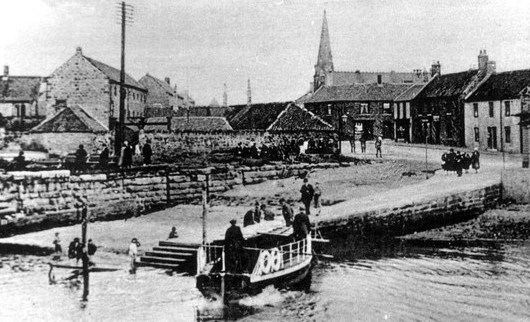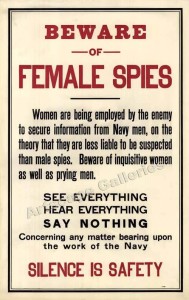
MEMORIAL UNVEILED IN AFRICA
IN MEMORY OF LIEUT. G. H. SHIELDS, BERWICK

In February, 1917 Lieut. George Hilliard Shields, son of the late Sergt. Major Instructor Stewart Shields, Berwick, and Mrs Shields, Quay Walls, was killed while on service in the bush country of German East Africa, by an enemy sniper. Now the staff and pupils at the school at Accra have honoured his memory by erecting in the school a handsome brass tablet and hanging on the wall a photo of the deceased officer taken by the side of a stream in the wild bush land.
Lieut. Shields, who was in the Gold Coast regiment, was the headmaster of the school in Accra, and took a great interest in his boys. He was a keen sportsman, and in 1915, the same year as his sister, Miss Agnes Shields (now Mrs Drylie) won the Officers’ Cup and several competitions on the Magdalene Fields course, he won the Sanitation Cup presented to the Accra Golf Club by the Doctors on the Gold Coast. His mother now has a solid silver miniature of this trophy.
THE UNVEILING CEREMONY
The ceremony of the unveiling of the tablet in memory of Lieut. Shields took place at Accra Government Senior Boy’s School, West Africa, on March 10th, and the Director of Education gave an address to the European staff, pupils and native staff.
In proceeding to unveil the Memorial, the Director of Education said- “We are assembled here to pay a united tribute to the late Lieut. Shields, headmaster of the school, who lost his life while on active service in East Africa. Mr Shields came to Accra as headmaster on the 17th January, 1913. He very soon obtained a sound grasp of the organisation of the school and was very quick to appreciate good work done by the members of the staff as well as that done by the pupils. In order to obtain a better understanding of his work he began to take lessons in the Ga language and quickly acquired sufficient knowledge of it to engage in ordinary conversation with the natives of the country. With that, however, he was not content. He made a study of the language and was not satisfied until he could act as interpreter in a native court dealing with purely native affairs. In the study of the Ga language he showed the same thoroughness which he later showed in east Africa. When war broke out he was amongst the first to offer his services, and on August 8th (four days after the outbreak of war) he was attached to the Lome Field Force for service aboard in the “Marina,” a small German ship captured at Accra. On the Marina he acted as chief officer. After the capture of Togoland he returned to his duties at Accra, but when volunteers were required for the Gold Coast regiment he again came forward, and in May, 1916, he was stationed at Coomassie. He proceeded on active service to East Africa in August, 1916. On February 3rd, 1917, he was killed in action. His death is a great loss to this Department, because he was an exceedingly capable headmaster. The good work which he has done was recognised by the Board of Education in May, 1917, when the following resolution was passed:- “That this Board desire to place on record its deep regret at the lamented death of Mr George Hilliard Shields, late headmaster of the Government School at Accra, who whilst serving as Lieutenant with the Gold Coast Regiment in East Africa was killed in action, and that the Board requests His Excellency the Governor to convey to the relatives of the late Mr Shields an expression of the Board’s appreciation of the services rendered by him in the cause of Education in this Colony, and its heartfelt sympathy with them in this, their great sorrow.”
In conclusion, the Director of Education said:- He was mourned by teachers and pupils, who in order to perpetuate his memory subscribed to purchase the brass plate, to be unveiled. By the side of the plate will be placed a photograph of Lieut. Shields, an enlargement from a snapshot taken by Capt.; Harman in East Africa. The brass plate and photo are permanently placed in the building in memory of an excellent headmaster, a brave soldier and a man who gained the esteem of all those with whom he came in contact. It will serve to inspire future generations of schoolboys with that sense of duty, love of country, and allegiance to their King.
The Director’s speech was interpreted, sentence for the benefit of the younger pupils, by Mr Kennedy, one of the teachers who served under Lieut. Shields in East Africa.
At the conclusion of the address, all present rose to their feet and amidst dead silence the Director unveiled the tablet. As the drapings fell away the pupils stood at attention whilst the “last post” was sounded on the bugle.
The plate, which is of brass with black engraved lettering, has in the left hand corner the cap badge of the Gold Coast Regiment and the Elephant and Palm Tree, the regiment badge, in the opposite corner. The inscription reads as follows:- “In Memory of George Hilliard Shields, Lieut. Gold Coast Regiment, Headmaster, Government Senior Boys’ School, Accra, (1913-17), who was killed on active service, near Njimbwe, German East Africa, on February 3rd, 1917.” “This Tablet is erected by the staff and pupils of his school.”
The ceremony terminated with the singing of the National Anthem. The bearing of pupils and colleagues, who numbered a thousand persons, bore striking testimony to the esteem in which Lieut. Shields was held.
SPITTAL NOTES
On Sunday evening last, when Mr Peter Cowe, fish merchant, Berwick, was standing near the Fish Quay at Spittal waiting for a ferry boat, he noticed what appeared to be a boy’s head come up above the water at the end of the Ferry landing.

He watched and saw the head disappear and rise a second time, and without waiting any longer he ran to the Jetty Corner, where he gave the alarm. Some fishermen were near, but they had never noticed the boy go into the water. The men, accompanied by Mr Cowe, ran to the spot, and the boy was pulled out in an exhausted condition. He proved to be the nine-year old son of Mr McIntosh, hotel-keeper, and after having been subjected to artificial respiration, he was taken home. We understand he is little the worse of his emersion. It was a happy chance indeed that Mr Cowe happened to be on the spot, otherwise the young fellow might have been drowned.
In last Saturday’s pigeon race from Durham, 53 birds were liberated at 12.25. Seven birds arrived about 2.30, and seconds divided the winners:- 1, Alex. Elliott; 2 and 3, A. Johnson. The first club race will be flown on Saturday from the same place, liberation at 12.30. The prizes will be:- 1st, £1; 2nd, 12s; 3rd, 8s; 4th, 6s; 5th, 4s. A special prize of 5s (by a Friend) will be given for the first hen timed in. There will also be a 6d. “pool.” Two birds will be nominated from each loft on Saturday morning to compete for the Vice-President’s (Mr W. Tait) Nomination Prize from York on Saturday, May 22nd.
“Tommy” Burn, who sailed last Friday for South Africa with the English football team has promised to write articles for the “Athletic News” dealing with the tour.
While playing with a salmon net winch on the beach at Spittal a little boy named Wood was struck with the handle on the chin and sustained a severe cut on the tongue, on Wednesday night. The child was conveyed home and had to be put under chloroform while two stitches were put into the wound.




